Nerine Dorman's Blog, page 103
January 8, 2012
Along the Splintered Path with AJ Brown
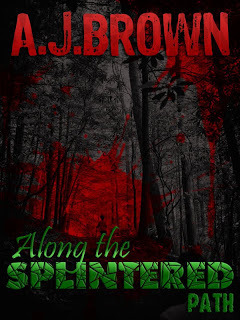
Today I welcome my fellow Tales of Darkness and Dismay author, AJ Brown, to my world. To put you in the picture, Tales of Darkness and Dismay is a collection of titles recently brought out by Dark Continents Publishing, an offering of novellas and short story anthologies, available in electronic format from Amazon. Brown is the author of Along the Splintered Path, a collection of short stories.
Tell us a little about your fiction, and especially this latest release through Dark Continents.
I tend to lean a little to the darker side of fiction—not always horror, but rarely ever those feel good, coming of age stories. I find it a bit more challenging to write about people who are put into situations that you don't see every day. Along with that, the world we live in today is becoming more and more brutal with acts of violence stepping into the realms of unfathomable acts. With that in mind, I try to do the same with my fiction, but without going into the gory details.
Along the Splintered Path falls in that category of the world as it is today. The three stories center on different subjects and one of them even gets a little supernatural, but they all keep their grip on reality. A young man deals with his childhood demons and tries to save his brother from those same memories that haunt him; another man splits with his wife and ends up in a valley in the mountains during a snowstorm. His only refuge? A small hut in the middle of nowhere made of trees and plant life from the forest. And a homeless man who comes into money after it falls from the sky and lands beside him. Their lives are 'splintered' so to speak, in one way or another.
Are there any underlying themes in the tale you think are particularly pertinent? How closely does life imitate art in your creative work?
Two of the three stories came as a result of events or things told to me. The Woodshed is based on a story my dad told me years ago about a man who beat his kids with a studded strap. I don't know if he even remembers the conversation, but it stuck with me. Round These Bones is a result of being in the mountains with my wife and having a truck come zooming by us while we stood on the edge of the road looking out over the mountains.
When I put the stories together I didn't realize there was a theme—the splintered souls, the torment and discovery of the characters—until my friend, Paula, pointed it out to me. Thus, the title, again thanks to Paula, who came up with it.
Tell us a little more about yourself and your writing methods. Do you outline or do you let the story wander as it will?
I'm a little bit of both. I probably do what most writers do: I get an idea, jot down a couple notes and then come back to it later. That's usually the extent of my outlining. Once I have an idea, I think about it some—I don't dwell on it. Doing that makes the story run and hide. Then I start writing.
Most of my stories have either the opening or the closing cemented when I start. I let the story fill in the rest as I go along. Here's the real thing for me: if I limit a story, it sucks. That simple. If I plan a story out, it sucks. However, if I go into a story with the mindset of, 'hey, story, are you ready?' the story gives a nod and we write it together, with the story telling me what to write. It often goes off on its own and—most of the time—I let it. I find this to be the most satisfying and exhilarating way for me to write.
Have you had any truly frightening real-life experiences you wish to share?
Oh man… oh yeah. I've had a knife pulled on me. I've had a gun pointed at me by a guy with suicidal tendencies. There was an accident as a child that left me partially deaf and resulted in a life long run of headaches.
Possibly the most disturbing thing that has ever happened to me is when I was in my late teens I went next door to see a neighbor. I don't recall why. When I knocked on the door, her youngest daughter who was maybe four at the time opened it. Her blond hair fell around her shoulders and I asked to see her mom. She looked up at me with those blue eyes and said, 'My mommy's dead.'
And she wasn't kidding. Her mother had died that morning, choking to death on toast. It was just her and her mother that morning and I've often wondered if she watched her mother die. I've also wanted to use this in a story, but I never have. I will one day—the image is strong and the way it made me feel… I don't get unnerved very easily, but this bothered me for a long time afterward.
Which three books should be on the great dark fantasy library shelf of all time? And why do you think so?
I'm not a real fantasy person, but I'll say the Dark Tower series, for both horror and fantasy should be up there regardless of what genre it is viewed as. The storyline is magnificent, the characters realistic and how many series' are out there that just have readers craving more and more?
Linkage:
Buy Along the Splintered Path here.AJ Brown's blog. AJ Brown on Facebook.
Published on January 08, 2012 23:04
January 2, 2012
Blood and Fire unleashed
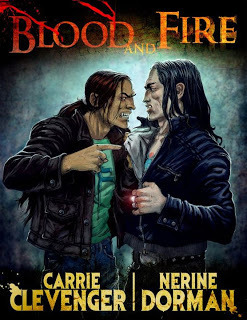
With the festive madness and NYE behind us, and I hope not too many of you are nursing the after-effects of too much indulgence. Things have been a bit disjointed at the Treehaus. I've been a tad under the weather with problems related to liver toxicity thanks to the meds I've been on. This, unfortunately, necessitated a short stay in hospital, but I'm back home and booked off while I recover. I've also cut back a bit on my working so I can rest up but it's going to have to take a severe case of death to keep me away from the one thing that I love more than anything else: words.
But there is some good news amid the "fun" over my festive season. The Top Sekret Projekt Carrie and me were working on, Blood and Fire, has been released in its Kindle edition on Amazon. It's available in a lot of countries, so if you're itching with something decent to read that involves tall, dark and looming males, some of them with extra byte, then do take a look here.
The cover art is rather lovely, and I'll be blogging over at Dark Continents Publishing in a few days to give a more indepth look into our creative process for the story.
Published on January 02, 2012 04:48
December 26, 2011
News of a contest from Lyrical Press
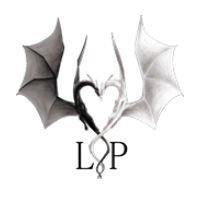
The First Annual Lyrical Press How Lyrical is Your Romance? Contest opens on Monday, January 16th. This contest is open to both published and unpublished authors.Entries must be complete works, ranging in word count between 15,000-100,000 words, any heat level, and fit into one of the following subgenre categories:
Contemporary romanceHistorical romanceParanormal or urban fantasy romanceRomantic steampunkRomantic Suspense Prizes: 1st Place: $200 advance and digital publishing contract (advance payable as $100 upon finalized contract and $100 upon publication).2nd Place: $100 advance and digital publishing contract (advance payable as $50 upon finalized contract and $50 upon publication).3rd Place: Top-scoring contestant in each genre category will receive an acquiring editor's critique of synopsis and first 50 pages of manuscript. Guidelines:File type: .rtf, .doc, or .docx only12pt black font (Times New Roman, Cambria, Courier or Georgia preferred)Line spacing: 1.5Margins: 1" allPage-breaks between chaptersPlease include a title page listing the following information:Legal namePen nameEmail addressContact phoneWorking title (include series name and details if applicable)Word countGenre/category Entries will be accepted from January 16, 2012 through February 5, 2012, and must be emailed to contest@lyricalpress.com. Entries sent to an email other than the aforementioned will be ignored. Please include book title and contest in subject line thusly: Booktitle – How Lyrical Is Your Romance?. Attach full manuscript, and 2-5 page synopsis in .rtf, .doc, or .docx format (Booktitle_MS and Booktitle_SYN as file names--your book title replaces "Booktitle"). After February 5, the contest will close, but we'll still be accepting submissions as always at our submissions@lyricalpress.com address.No entry fee required. Judges reserve the right to Decline to Judge any entry if it does not fit our lines, level of writing is not acceptable, or submission guidelines are not followed.Entries will be judged on the following criteria: Hook, Pacing/Plot, Characterization, Dialogue, Mechanics, and Author Voice.Winners will be announced on March 12, 2012 via our blog http://lyricalpress.blogspot.com/ and direct emails to winners.
Published on December 26, 2011 21:50
December 11, 2011
Sara stops by my spot
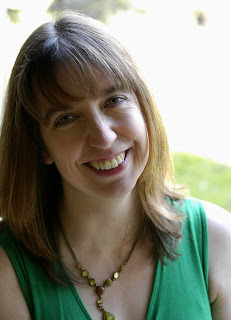
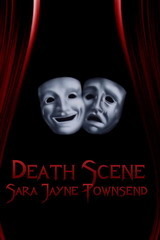
Sara Jayne Townsend has a taste for solving mysteries, and it shows in her fiction. I've had the pleasure of working with her on two of her novels, which she published through Lyrical Press, and I invited her to stop by my blog today to chat a little bit about the art and craft of writing.
Plus she's a gal after my own heart. She's learning to play bass guitar!
Welcome, Sara!
Although your first novel has supernatural elements, you show a tendency toward murder-mysteries. Are there any novels/authors that are influential with regard to this?
Sara Paretsky is hugely inspiring to me. Her character, VI Warshawski, was the first female private eye in the field of crime fiction, and I still hold her up as a shining example of a strong-minded, independent woman, and she introduced me to the genre of crime with a female heroine. In fact, this is what inspired me to try to write a series of my own featuring a female amateur sleuth.
Ebooks aren't tangible and, so far as I can see, the ereader market is still growing outside of the US. How do you market yourself in the UK?
It's hard with ebooks as you have no physical product to sell to people. On the other hand, bricks-and-mortar bookshops are in decline as virtual bookshops like Amazon rise ever higher, and even print authors are turning more to the internet to market their books. The good thing about the internet is that it's global. Virtually all of my marketing is done online. As well as having a website and a regular blog, I utilise social media sites such as Facebook, Twitter, LinkedIn, Goodreads, etc. I also do guest blogs and online interviews whenever I can, just to try and get my name out there as much as possible.
On top of a day-job, how do you balance your writing/reading schedule?
It can be tough. It seems like there aren't enough hours in the day. I have a two-hour journey every day on public transport to and from work, and I do most of my reading on the train.
I used to be able to write late into the night and then get up for work five hours later and still function, but now I'm the wrong side of 40 I can't do that any more. I find when I get home from work I'm too exhausted to write productively, so I use that time for writing blog posts, answering emails, and whatever other marketing activities need doing. And fitting in all the other non-writing aspects of my life such as going to the gym and learning the bass guitar.
For the last couple of years, I have been getting up early a couple of times a week and going into London on the early train, sitting in Starbucks for an hour to write before heading into work. And I try to get some writing time in on weekends if I can. This is working for me, but if someone had told me fifteen years ago I would be voluntarily getting out of bed at 5,30am to write, I wouldn't have believed them.
First and foremost, all authors are readers. What are the next three books on your "to be read" list and why?
Body Work by Sara Paretsky. As I mentioned earlier, I am a huge fan of Sara Paretsky. I had the privilege of meeting her when she was in the UK earlier this year as part of a tour to promote her latest book and I got a personalized signed copy of it.
Ghost Story by Jim Butcher. I am a big fan of Jim Butcher's series about contemporary Chicago wizard Harry Dresden. I read Changes recently. Without giving away any spoilers, the book finishes on something of a climax. I had to go buy the next book to find out what happens next.
Babylon Steel by Gaie Sebold. This is a debut novel by a friend of mine, soon to be released by Solaris. Gaie is an amazing writer and I am so pleased that she's now got a novel in the public domain, so everyone can enjoy it. Although it's fantasy, which isn't really my genre, the title character of Babylon Steel is just my sort of woman – independent, and strong-minded. She's an ex-mercenary who runs a brothel. Gaie has a witty and easy-to-read style of writing and I am looking forward to reading her debut novel.
How has your approach to writing changed since publication of your novels? What have you learnt about yourself?
I've learned that I'm quite lazy and have had to become far more disciplined about my approach to writing. We all have the same number of hours in the day, it's how we use them. As I mentioned earlier, getting up early to write is one change I've made to ensure that I do get some writing in every week. I also spend a lot more time on internet promotion. This can often seem like a thankless task with no immediate reward, but I think it's important. Building one's name as a writer is a very slow and gradual process.
I've also learned about some of my own bad habits in writing – such as feeling the need to describe every single detail. In early drafts of Death Scene, when my amateur sleuth got out of the car, she didn't just get out of the car. She put the brake on, turned off the engine, undid the seat belt, opened the door, got out, collected her bag, shut the door, locked the car, walked away. I think this comes from my own rather anal habit of attention to detail, but the reader will imply she's done all these things just by her getting out of the car.
What, in your opinion, are the three greatest mistakes authors make when promoting their writing?
One is to assume they haven't got time for promotion. Many writers have said to me they don't blog because blogging detracts from writing time, and it has no affect on sales. I know it's said that the most effective way of selling your book is to write the next one, and I have no doubt that's true, but the industry is changing and it's becoming ever important to get yourself Out There. Readers find an author they like, chances are they are going to Google that author. The more places on the internet you can be found, the better. Blogging is a very good platform for getting yourself Out There. You don't even have to blog about writing – readers want to know about the writer as a person. Most people think they lead quite boring lives, but other people are interested in aspects of your life unfamiliar to them. I find commuting to London every day very boring, but people who don't live in London seem to find the tales I tell on my blog about my daily commute interesting. If only one person decides to buy your book because they came upon your blog and decided you were an interesting person, then it's been worth doing.
However, you have to be careful of over-exposure, which I would list as Mistake Number 2. If you're on Twitter, you shouldn't be using it solely to tell people to buy your books six times a day. There's a fine line between being proactive and being intrusive. Tweet regularly, but Tweet about other things as well as your book.
The third mistake is, I think, writers who take criticism too personally and decide they are going to use the internet as a public forum to defend their book. I've seen – rather too often, it seems – a writer who's had universal praise have a rather public meltdown when someone posts a less-than-favourable review about the latest book. Some writers have felt the need to defend their book, which has often involved attacking the reviewer. Growing a thick skin isn't easy, and it does rather cut to the bone when someone really doesn't like your book, and says so. But the author biting back on this doesn't look professional, and ultimately will not help sales. Not everyone's going to like your book. That's just something you have to live with.
* * * *
Sara Jayne Townsend is a UK-based writer of horror and crime fiction. She has two novels, Death Scene and Suffer the Children available as ebooks from Lyrical Press, and a collection of short stories scheduled for release in 2012 from Stumar Press.
You can learn more about Sara and her writing from her website and her blog.
Published on December 11, 2011 06:06
December 2, 2011
It's all about image
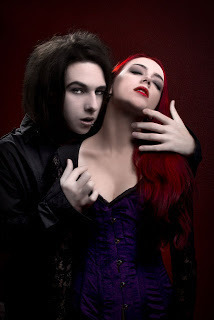
I'm very fortunate to be part of a burgeoning creative scene here in Cape Town, and was honoured to work with the very talented Leon Visser on the cover art for my upcoming Lyrical Press release, What Sweet Music They Make. We had a fun-filled day shooting with our two lovely models, Lohan and Anika then chose the two images we'd work with. It's good to have options. And it was a difficult decision at the end of the day, because both images had their charms.
Published on December 02, 2011 09:43
November 23, 2011
Black Friday at Lyrical Press

Shop at Lyrical Press on Black Friday and save 50% on our entire catalog of digital books (and you don't even have to get up early and stand in line all day!)
Have a Kindle? Have a Nook? No problem! Lyrical books are compatible for most reading devices.
So this is an unashamed plug from me telling you to GO BUY MY BOOKS.
Yes, you can read it on your iPad too, you geek.
Why? 'cos I'm not ashamed to say that I rock and will give those hankering after vintage Poppy Z Brite, Storm Constantine and Neil Gaiman some of the good, dark stuff.
Khepera Rising
The wickedest man in Africa has problems, and they can't all be solved by magic.
Occult bookshop owner and black arts magician James Edward Guillaume reckons he has it all, and enjoys living up his reputation as South Africa's "wickedest man", a nice house, a business that's breaking even and the pick of all the pretty Goth girls and boys in Cape Town.
Little does he know, a group of violent Christo-militants are panting at his heels, ready to destroy his carefully constructed fantasy world. To add mischief to his misery, he's unwittingly unleashed a terrifying demonic entity, and he alone holds the key to The Burning One's secret. To bring order out of the chaos, all James has to do is conquer his personal demons, teach a rather nasty, self-righteous sod a lesson in humility and find out whether he can win back the trust of an old flame. Only, as James discovers, getting back on top is hell on earth.
Khepera Redeemed
Just when the wickedest man in Africa thought the nightmare was over...
Still recovering from the trauma of his encounter with the Christo-militants who tried to kill him, Jamie only wants to get his life back on track. This is easier said than done when he's essentially blackmailed into helping solve a case involving alleged cult activity.
To complicate matters further, the media gets involved and Jamie has to tread carefully. However, soon the hunter becomes the hunted and Jamie faces some difficult choices. Will his uneasy symbiosis with The Burning One save him or will he be tempted to grasp for more power than he can possible hold?
The Namaqualand Book of the Dead
How far will you travel to lay your dead to rest?
Struggling to come to terms with her boyfriend Aidan's death, Chloë is ill prepared to deal with the violent murder of his best friend. When tantalizing evidence suggests there is more to Aidan's apparent death than meets the eye, Chloë will not let her lack of material resources keep her from uncovering the truth, even if the truth proves far more dangerous and with a far more sinister nature than she bargained for.
Hell's Music (writing as Therese von Willegen)
Sometimes trouble comes in a very appealing package.
It's never nice when your boyfriend leaves you for someone else. It's even more of a slap in the face when he leaves you for a man. Emily Clark has put her wild years and the boyfriend she considered "safe" behind her, ensconcing herself in a Luddite lah-lah land centered on her second-hand bookstore.
But when her self-absorbed sister runs away from home to end up on her doorstep, Emily discovers the past has a funny way of creeping back into her life. And when an alternative musician uses her shop as a hideaway from a nosy reporter, Emily finds herself falling for the enigmatic man. By the time she realizes his celebrity status, it's too late--she's head over heels for Simon van Helsdingen, a notorious shock-rocker. Not only must she deal with her sister's delinquent ways and their dysfunctional family, but Emily must navigate the stormy seas of being with a man whose reputation for trouble puts Ozzy Osbourne in the shadows.
Published on November 23, 2011 08:56
November 21, 2011
On Agents--a discussion with Louise Fury
A few months ago I had the pleasure of having coffee with literary agent Louise Fury, whose refreshing attitude toward the publishing industry immediately had me perking up. Thank you, Louise, for stopping by my blog today and answering some of the questions I wish I'd had answered way back when I was first starting out.
When you receive submissions, what sort of stories are you tired of seeing?
The same old vampire tales and things that have been done to death. I am looking for "fresh" takes on old tales, beautiful imagery and well-crafted dialogue. What are some things queriers do that elicit a "hell no" reaction from you? I am going to be very honest and tell you that it is rare that I read past any first paragraphs that start with someone waking up or dreaming. I read tons of submissions a day and at least eight or nine of them start with someone waking up. It has been and continues to be done to death! The beginning of your story doesn't always start at the beginning of the day. It starts at THE BEGINNING of the story! The moment/s leading up to the event/person/etc. that everything changed. If you can't find a unique and creative way to start, I question your instincts and creativity. I don't appreciate photographs of yourself, I delete unsolicited attachments and I don't need to know about your personal life or family. I only care about your work, your experience and the story you are trying to get me to read. What can authors do to make your life easier? Follow submission guidelines as listed on our website: www.lperkinsagency.com What do you, as an agent, offer your clients? What can they expect from you? I bring to the table years of experience in the marketing and publishing industry, I brainstorm new ideas, listen to old ones, help with edits and structure. I make sure their work is ready for submission, prepare and send it to my editorial contacts and advocate for my author. There are so many things an agent does and it is not only about getting and negotiating a publishing contract. I cannot list all the things I do here, but I am part of a team – foreign/translation agents, film agents, marketing professionals, contract managers etc. I do not work alone, my colleagues and I work together and my authors benefit from the entire team. I also happen to be part of an agency that has been around for more than 20 years and is always adapting to meet industry changes and demands. We are very careful to evolve and we embrace change. Our clients know that we always try to get through the wall first. We were ahead of the pack when it came to the digital revolution and we continue to strive to stay ahead. Out clients come first and sometimes that means taking some heat for being the first to adapt to change, but we don't mind, because this is an ever-changing industry and we will always make sure to move forward. Bad agents, they're out there. What are the warning signs authors should look out for when encountering these entities? Don't pay anything up front for representation. Know the industry. Don't listen to gossip. Do your research and you won't have to worry. The warning signs are always different, but if you have done your research, it should not be a problem. Not all agents are created equal and not all agent/author relationships work out. But it is not always the agent or author's fault. Sometimes personalities clash. Be careful of rumors because just as you could easily sign with someone who might be considered "bad," you could also pass up someone good based on false facts. Follow Louise on Twitter @louisefury or at her blog: www.louisefury.blogspot.com
When you receive submissions, what sort of stories are you tired of seeing?
The same old vampire tales and things that have been done to death. I am looking for "fresh" takes on old tales, beautiful imagery and well-crafted dialogue. What are some things queriers do that elicit a "hell no" reaction from you? I am going to be very honest and tell you that it is rare that I read past any first paragraphs that start with someone waking up or dreaming. I read tons of submissions a day and at least eight or nine of them start with someone waking up. It has been and continues to be done to death! The beginning of your story doesn't always start at the beginning of the day. It starts at THE BEGINNING of the story! The moment/s leading up to the event/person/etc. that everything changed. If you can't find a unique and creative way to start, I question your instincts and creativity. I don't appreciate photographs of yourself, I delete unsolicited attachments and I don't need to know about your personal life or family. I only care about your work, your experience and the story you are trying to get me to read. What can authors do to make your life easier? Follow submission guidelines as listed on our website: www.lperkinsagency.com What do you, as an agent, offer your clients? What can they expect from you? I bring to the table years of experience in the marketing and publishing industry, I brainstorm new ideas, listen to old ones, help with edits and structure. I make sure their work is ready for submission, prepare and send it to my editorial contacts and advocate for my author. There are so many things an agent does and it is not only about getting and negotiating a publishing contract. I cannot list all the things I do here, but I am part of a team – foreign/translation agents, film agents, marketing professionals, contract managers etc. I do not work alone, my colleagues and I work together and my authors benefit from the entire team. I also happen to be part of an agency that has been around for more than 20 years and is always adapting to meet industry changes and demands. We are very careful to evolve and we embrace change. Our clients know that we always try to get through the wall first. We were ahead of the pack when it came to the digital revolution and we continue to strive to stay ahead. Out clients come first and sometimes that means taking some heat for being the first to adapt to change, but we don't mind, because this is an ever-changing industry and we will always make sure to move forward. Bad agents, they're out there. What are the warning signs authors should look out for when encountering these entities? Don't pay anything up front for representation. Know the industry. Don't listen to gossip. Do your research and you won't have to worry. The warning signs are always different, but if you have done your research, it should not be a problem. Not all agents are created equal and not all agent/author relationships work out. But it is not always the agent or author's fault. Sometimes personalities clash. Be careful of rumors because just as you could easily sign with someone who might be considered "bad," you could also pass up someone good based on false facts. Follow Louise on Twitter @louisefury or at her blog: www.louisefury.blogspot.com
Published on November 21, 2011 09:43
November 17, 2011
The Pumpkin Man winner!
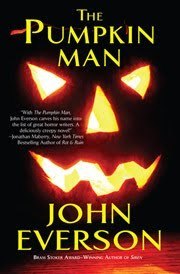
On October 25, horror author John Everson stopped at This Is My World for an interview while on his blog tour for his new novel THE PUMPKIN MAN. As part of the interview, he offered readers a chance to win both a grand prize of all of his novels or an e-book edition of THE PUMPKIN MAN, solely for people who entered the contest from this site. On Halloween, John had his son draw names from "the Great Pumpkin" and chose Carrie Clevenger to win the e-book from This Is My World. The full list of winners, including the grand prize, is listed over at The Pumpkin Man website. Congratulations Carrie!
For everyone who didn't win in the drawing, we hope you'll stop by the website dedicated to THE PUMPKIN MAN, read some sample chapters and free short stories, play the Ouija Board and maybe pick up a copy of the book from Amazon or the other links in The Pumpkin Man Store. Visit www.thepumpkinman-horror.com and check it out!
Published on November 17, 2011 03:44
November 8, 2011
Two perspectives on publishing
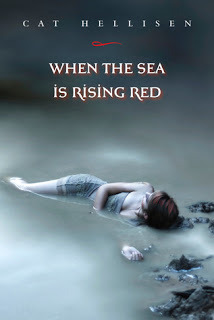
There isn't a right way or a wrong way to get published. Both traditional and small press publishing environments offer different benefits/drawbacks to authors. I've got my good friend and writing buddy, Cat Hellisen (author of When the Sea is Rising Red), blogging with me today about the differences in the two methods. We've approached our publishing careers from two very vastly different paths and I thought it would be nice to compare our journeys.
Nerine—un-agented, indie-published author
Why would you want an agent?
Although I've several small press and self-published titles behind my name, I still try for a literary agent because I'd be able to get an "in" with one of the bigger publishing houses. A reputable literary agent would have a vast network available to me, and would be able to negotiate a better deal for me. Essentially, I'd entrust someone who's got a grasp on the nitty-gritties of contracts with selling my writing to the right publisher, leaving me free to concentrate on my creativity. While I'm not bemoaning the fact that I don't have an agent, I'm not losing sleep over it either while I home my titles with reputable small presses. Remember, no agent is better than a bad agent.
How would you choose an agent?
I always run a background check on any literary agent I submit to. To this end, the Absolute Write forums are worth their weight in gold (http://www.absolutewrite.com/forums) and I always stop by Preditors and Editors (http://www.pred-ed.com). This is, naturally, a time-consuming task but I'm adamant I only want to deal with people who are legit. Another thing I make sure of is that the agent I'm approaching does, in fact, represent the kind of fiction I write. It's no use submitting a dark fantasy story involving a half-demon vampire to an agent who represents mostly Christian inspirational fiction. Let's repeat that mantra: "No agent is better than a bad agent".
What are some of the benefits of small press publishing?
Many of the small presses allow a lot of freedom for authors to experiment with their writing and the direction their stories take. Some (not all) also offer faster turnaround from date of acceptance to release day than what one would get in a traditional environment. In my experience, dealing with a reputable small press marries the best aspects of self-publishing with traditional publishing, giving me, as an author, access to cover artists and editing expertise, with an established administration system to deal with vendors and royalties. I don't want to still play publisher, so all the belly-aching is removed from the process. Point is, I could do this all myself, but I don't want to.
What's the downside of small press publishing?
As a small press/indie author it's often very difficult to make my voice heard above the absolute flood of other authors in the same boat as me. Also, I am reliant on royalties, so I often see very little return for my investment. I don't write specifically in the "best seller" niches of erotica, and genres such as dark fantasy and/or horror still have small readerships in an electronic market. Not all my books are available in print. Some are only available in ebook format. There's no nice advance and I won't be quitting my day job any time soon. The only time that I have to write is during my lunch hour or over weekends. Also, I'd love to have the kind of editorial feedback a good agent would give an author, and also have the opportunity of working with more hardcore editors, which will only help improve my skills in the long run.
Your advice to authors?
Remember why you're writing in the first place. If it's because you want to make lots of money and be the next Rowling or Meyer, stop right there and step away from the computer. Like any other author, I'd love to get that elusive, six-figure book deal, but I'm realistic about it. I write stories because I enjoy writing stories. I'm grateful that a number of small presses have faith in my abilities by extending contracts to publish my writing. I'm even more grateful to the people who buy my books then tell me how much they enjoyed my stories. If, at some point, I reach that mythical number of a thousand true fans, that's also peachy keen. Be prepared to do a lot of self-promotion, and be active on Twitter, Facebook and with your blogging.
Primarily I remind myself I'm a storyteller. That's why I do it. I read widely and outside my genre. I listen to the critique offered by my writing partners. I aim to improve each novel I write. Every time I submit, I aim high. I try not to take rejection personally and I keep revising and resubmitting as I go along. There are very few overnight success stories in publishing. It's ten percent raw talent and ninety percent hard work.
* * * *
I'm Cat Hellisen. When the Sea is Rising Red is my first published novel, and it took me many years of dreadful first drafts to get here.
Why would you want an agent?
While there are still a few big spec fic publishers who accept unagented manuscripts (Tor springs to mind), I didn't want to limit my chances of being read. An agent has more connections within the industry, and a better knowledge of which editor is more likely to be interested in what. They also deal with contracts, with foreign rights, movie rights, and a host of other things that I do not want to deal with. A good agent is also your first fan. They're the person in your corner.
An agent is also likely to score you a better advance and friendlier contract than you'd be able to on your own.
How would you choose an agent?
There are many people out there doing an excellent job of watching out for scam agents and agencies (http://www.sfwa.org/for-authors/writer-beware/agents/ is a good place to start.) But ultimately, you're going into a business partnership with someone, so you need to do your research. If you get a bad feeling about certain business practices, there's a damn good reason for that. Agents charge their clients (generally) 15%. That's AFTER they've sold your work – the 15% comes out of the cheque your publisher cuts you. They don't ask for money up-front, reading fees, editing fees, and other strange things. And a good agent is worth every bit of that 15%.
Know what you want from your agent, and ask to speak to some of their clients before you make a decision. If they don't want you to do this...be wary. Do you want an agent who gives editorial feedback? Mine does, and it really helps me, but other writers want less input. Do you want an agent who is communicative and keeps you in the loop about submissions and progress? Not everyone wants that level of communication, but others need it or they go insane (Hi. *waves*)
My agent, Suzie Townsend, is wonderful – she takes no nonsense, but she's also sympathetic to the fact that all writers are insane. Also she knows how to score me amazing blurbs. Fantastic person, and I am so glad I signed with her.
Sometimes things don't work out. Whatever you do, don't let that make you think you're a failure. Don't feel that if you part ways with an agent that your writing career is now over. I know very few writers who are still with their original agent.
What are some of the benefits of traditional publishing?
Massive amounts of editing. (In my case, anyway). I'd already done a number of revisions before my book sold, but my wonderful editor, Beth at FSG, took me through another three pretty substantive edits, and that was before we dealt with nit-picky things in several rounds of copy edits. One of the best things about my editor is that she doesn't read the way I do, so she brings a different perspective to my books - she's the one asking me the hard questions and not letting me coast. And like your agent, your editor is your fan – he or she bought your book because they loved it. That's a pretty awesome thing in itself.
Big publishers also have marketing departments. I'm not quite sure what people normally expect from their publicists, but I wasn't expecting anything at all because I'd heard horror stories about how unless you were a big name no-one actually cared. So I was happy to find out I have perfectly lovely people helping to promote my book, sending out arcs and setting up awesome opportunities for me. So that part rocks.
What's the downside of traditional publishing?
I am not Patient Bunny.
So I can guess you see where this is going. Those edits I talked about earlier? Yeah. They don't happen overnight. When the Sea is Rising Red sold in May 2010. It comes out in February 2012.
This is something that you just have to learn to deal with. No matter how frustrating it is.
Your advice to authors?
Read everything you can. Write and keep writing. Write with the intention of improving. Write with the intention of having fun.
If you're ready to start looking for an agent or publisher, make sure you've done your homework and that your novel is the best it can possibly be.
Don't give up. I wrote (I think) eight complete novels before I sold my first one. Like any art, writing is not something that happens overnight. When you start, your work will most likely fall short of that goal in your head. It might have potential but it will still be the work of a beginner. Good writing comes with practice.
Published on November 08, 2011 11:44
First look at BLOOD AND FIRE
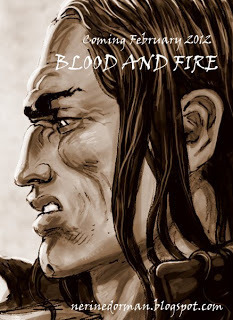
Another special by Carrie Clevenger and Nerine Dorman
See Xan's teaser here.
I gathered a few tangles of daimonic essence, just enough to be coiled, in case I had to strike, and pushed open the door. The barrier swung inward, grating dryly on invisible hinges. Within was a chamber, its unplastered walls revealing redbrick and mortar. The only source of light was yet one of those horrid green lights that illuminated a lidless sarcophagus, which appeared to be carved out of limestone.
Within lay a Native American man with noble features, his body bound painfully with chains in a mockery of a mummy's bandages. Several padlocks held these bonds in place. He wasn't a mortal. His lips were pulled back in a silent rictus snarl to reveal vicious elongated canines—which would not look out of place on a wolf.
Other collaborations by Carrie Clevenger and Nerine Dorman, Just My Blood Type
Nerine's Facebook pageCrooked Fang on Facebook
*teaser material subject to change
Published on November 08, 2011 09:14



